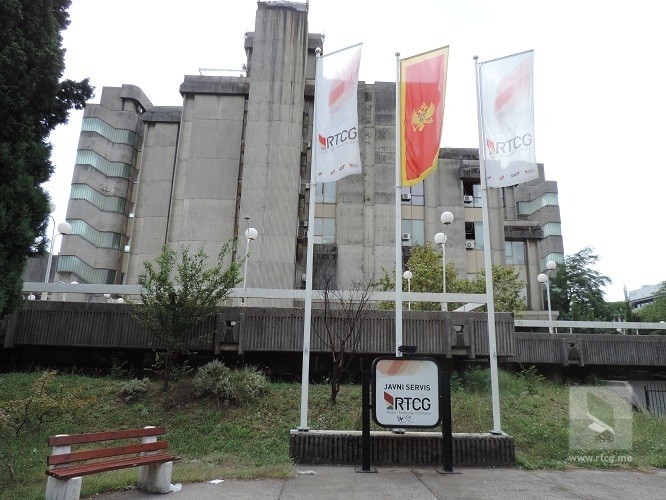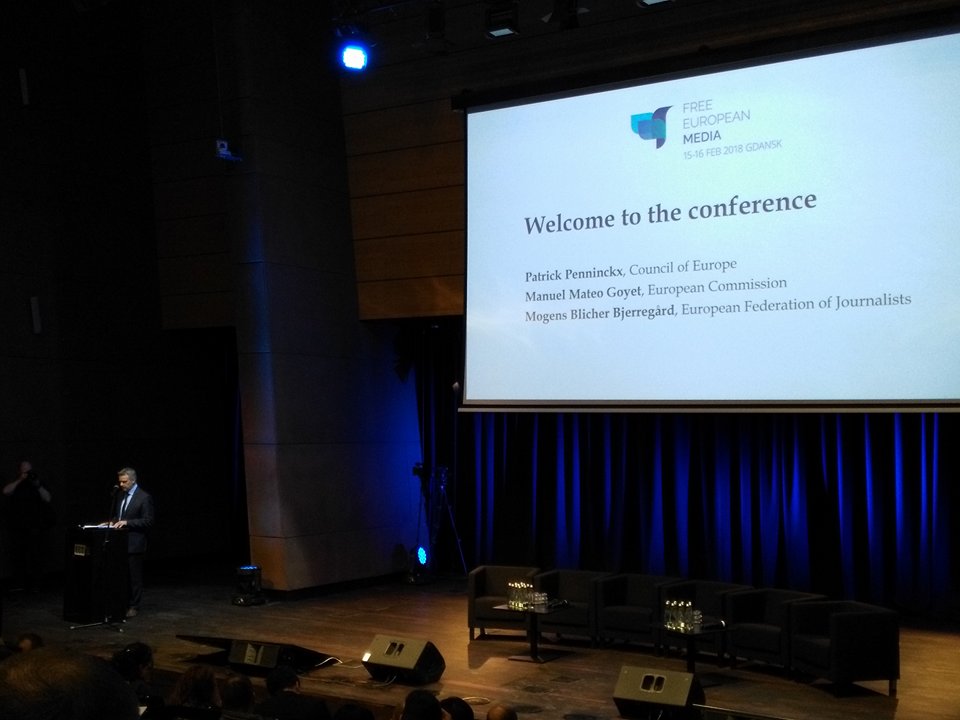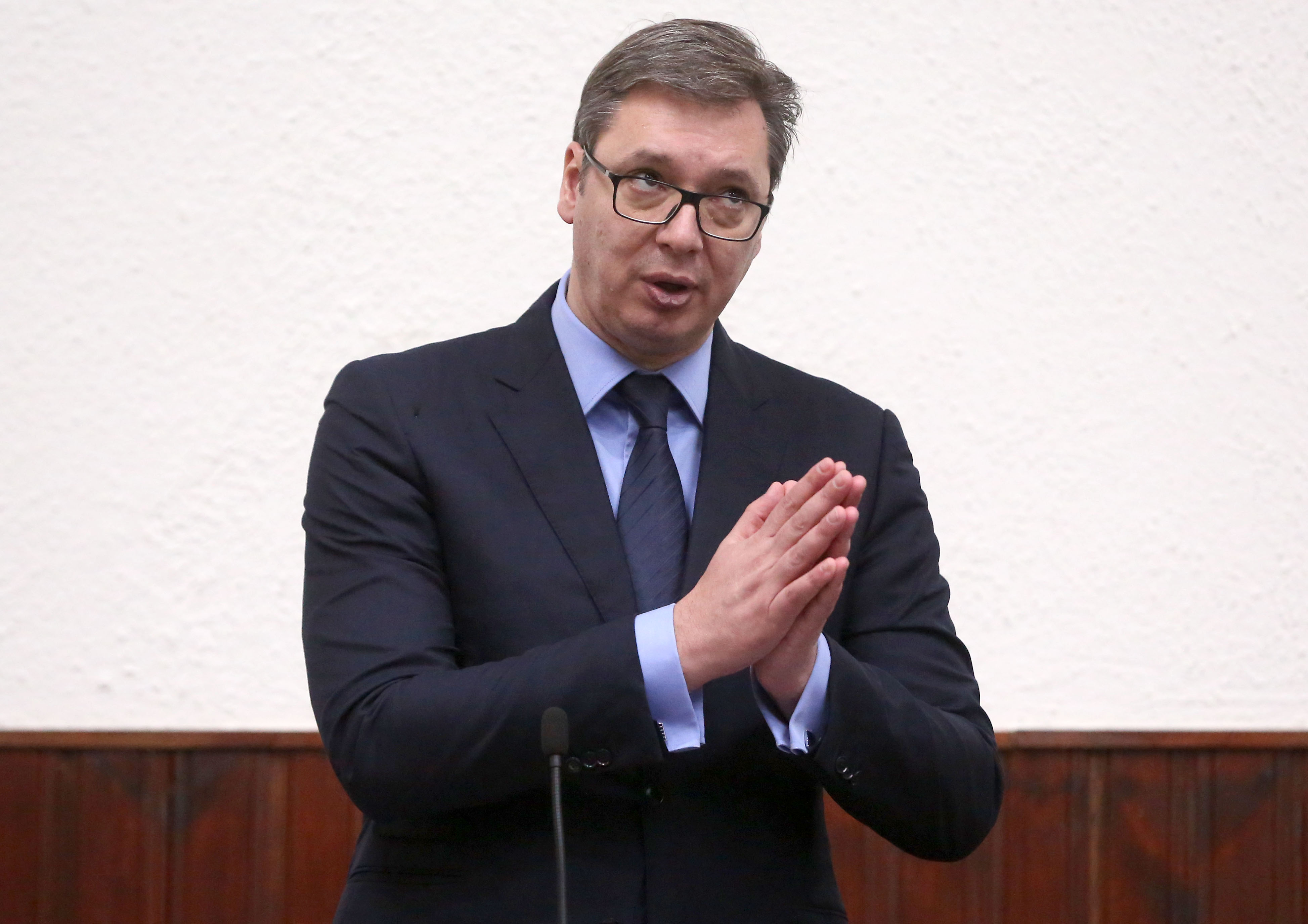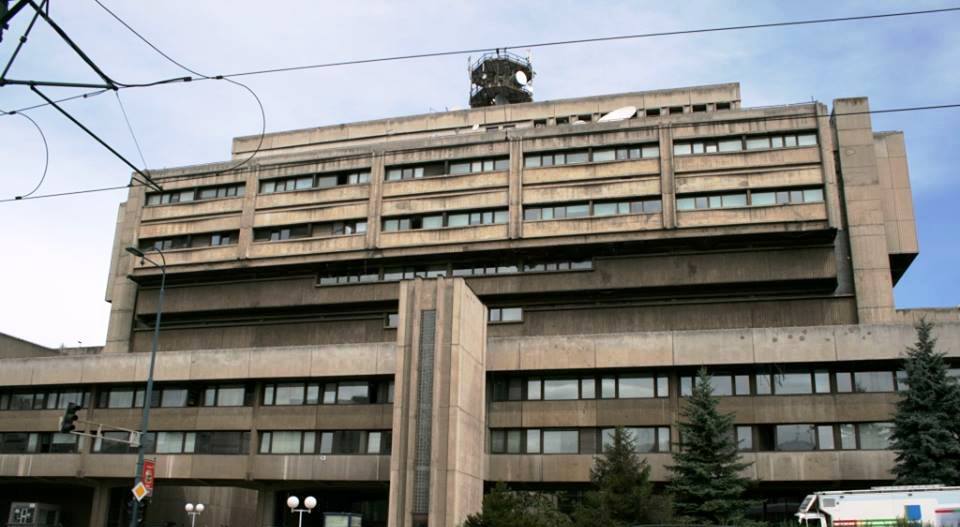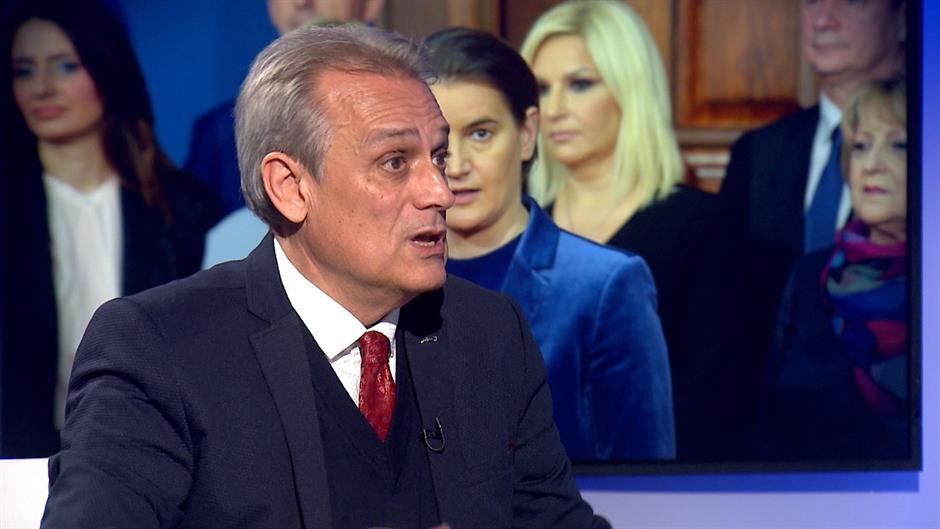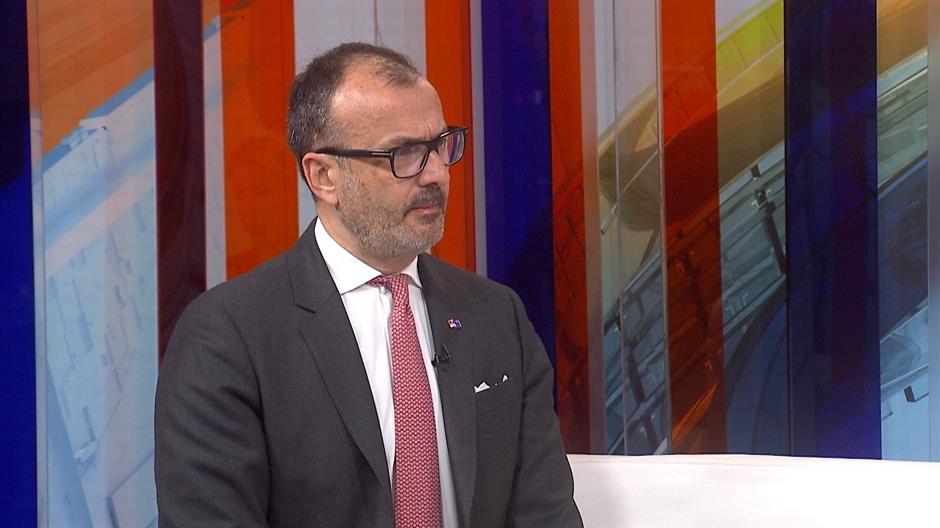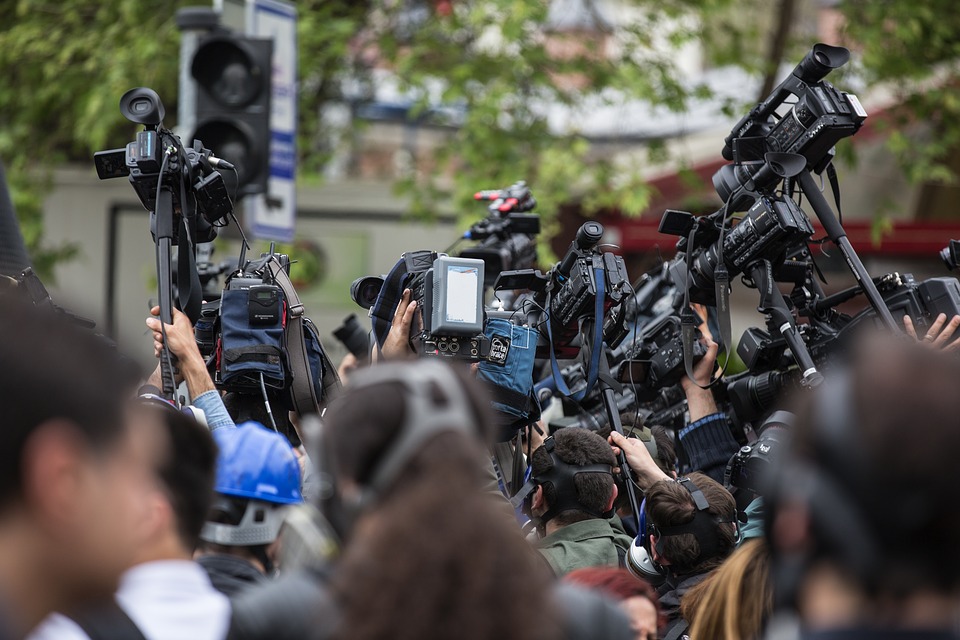BELGRADE, 14.02.2018. – Ministry of culture and information has no mandate to publicly condemn attack on journalists, said Aleksandar Gajovic, the State Secretary for media. In an interview for Radio Free Europe, Gajovic sad that journalists, as everyone else, should protect themselves and report attacks to the authorities. Gajovic assessed that “attacks on journalists that are not pro-government are deliberately being highlighted” and questioned the veracity of their testimonies about threats and attacks.
RFE: Tamara Skrozza, Vreme journalist, member of Press Complaints Committee with the Press Council and CRTA organisation has been subjected to a campaign by TV PINK. It broadcasted a report in central news programmes that contains edited bits of her statements from the satirical show “24 minutes with Zoran Kesic”. She was presented as an enemy of the Serbia president. Why the Ministry of information and culture did not react to this?
Gajovic: Ministry of culture and information deals primarily with legal norms and supervision; it supervises the way three media laws are implemented. We don’t protect anyone individually. If Ms Skrozza thinks she was damaged in any way, she should report it to the police which will process it and that’s it.
RFE: This is not a matter of police protection; I asked why the Ministry didn’t condemn the smear campaign?
Gajovic: The Ministry of culture and information deals with protection of journalists through bringing the laws. The biggest problem of Serbian journalism and Ms Skrozza is that she doesn’t read the law. If she would read all 3 media laws, especially the Law on information and media, then she would know how to protect herself. Everyone needs to protect themselves, in one way or another.
RFE: Are you saying that she has to protect herself in this situation?
Gajovic: She should turn to a particular state body that deals with it. Ministry of culture and information is not dealing with things you think we are dealing with.
RFE: You say that your Ministry is not in charge, why the Regulatory Body for Electronic Media (REM) did not react?
Gajovic: I will ask you a counter-question – are there attacks on doctors in this country, are there attacks on lawyers, are there attacks on any other profession? How are they protected? They protect themselves reporting the attack to the police. Police takes on the case and works on it. It’s not done by the chamber of lawyers, the health care chamber and so on. So, you just need to read the laws and see your rights, but also obligations. When we read our laws, rights and obligations, we will easily get into the situation to protect ourselves. All, not only you and me or Mrs Skrozza.
RFE: When a television with millions of viewers labels and targets journalists in this way, is it a task of the Regulatory Authority for Electronic Media to control the work of television that reports in such a way?
Gajovic: If you read the Law on Electronic Media, then you would understand what REM does and deals with. This is then a question for them, and not for the Ministry of culture and information and the State Secretary.
RFE: But you yourself say that you have a command responsibility for the situation in the media?
Gajovic: No, you have a great misconception. I have my rights and I have my authority. My authority is only within the laws that exist in the Republic of Serbia, and I follow these laws. Beyond that, I have no jurisdiction to step anywhere outside these laws, because if I do that I violate the law. The Ministry will always condemn all kinds of attacks, including the attacks on journalists. We are against any kind of intimidation, denial of freedom of speech and, in particular, we are against the hate speech, this is completely clear.
RFE: But you did not publicly condemn (the campaign against Skrozza)
Gajovic: Are you expecting of us to call a press conference or give some opinion to the agencies?
RFE: Do you think there’s no reason for that?
Gajovic: No, it’s not about whether or not there is any reason, but simply – it’s not within our authority to condemn or not condemn.
RFE: Whose authority it is then, if even REM failed to react?
Gajovic: The Parliament of RS chooses the members of the Regulatory body and it is responsible for them. The Regulatory body annually reports to the Parliament, not the Ministry, about its work. That is the connection.
RFE: But I asked about your views – should they have reacted?
Gajovic: Again, you should read the Law on electronic media and you will find out about REM’s mandate. They are here to supervise the programme. The Law states a range of what they should do if they think that something is not as envisaged by the law, from misdemeanour charges to prohibiting the broadcast. In this sense, REM should do its work.
In its essence REM is entirely independent and cannot be cautioned by the Ministry of culture and information for this or that failings. We can, and we do, talk to them, exchange experience, and help them work better because, for your information, REM has great problems. They work without a Statute, again something the Parliament is authorised for. For some time they’ve been working without 3 members. They don’t have, I’m not sure if it is a director or a president of REM, I think it’s a director of REM. They don’t have it, only a deputy director. They have no financial plans, these are the problems…
RFE: U will repeat my question; do you think that REM made a ‘failure’? Do you, as a State Secretary in the Ministry of culture and information, think that REM should have reacted to the attack on Tamara Skrozza?
Gajovic: Personally, as a citizen of the Republic of Serbia, I think that it should have, but not only REM – I think the state and the state authorities should react to every display of force, to any denial of any freedoms.
RFE: Do you think that targeting and labelling journalists in the public space, is putting them in danger? I will remind you that a week ago we had an attack on a colleague from N1, Nikola Radisic, who was labelled on the street with cursing and spitting, as an “American” and a “ traitor”. This TV station was labelled precisely as “American“ by the president of Serbia, while the minister of police and the officials from the ruling Serbian Progressive Party, call it the “CIA television that works against the Government of Serbia”. Is there responsibility for a publicly spoken word that can lead to such things (attacks)?
Gajovic: Everyone is responsible only for oneself. I have to ask you one question in this interview, since we are talking about the attacks on journalists. Why don’t you ask me the question about when the attack on Dragan Milanović that took place on 05.10.2000 will be solved? (Dragoljub Milanovic, the former managing director of the Radio television of Serbia, who served a ten-year sentence for the responsibility for the death of 16 RTS workers during the NATO bombing in 1999 was attacked by angry mob as he left the RTS building on the day demonstrations against Milosevic that lead to regime change)
RFE: That argument is not valid as we are now discussing an attack on colleague Nikola Radisic that happened a week ago.
Gajovic: And why do you think the attack on Mr Radisic is more significant than an attack on the RTS general director? We will skip the attacks on Dragan Milanovic deliberately, not only you, and I don’t hold it against you, but, of course, we will always emphasize these, so to say, independent journalists, that stand out in a certain way and are not, let’s use the word, pro-government journalists.
I must repeat that I, as well as the Ministry, will condemn and we will never stand behind anyone who uses force in this country. I condemn, of course, every attack, including that on Mr Radisic, but I have to admit, regarding this attack, that I’m not completely informed about what kind of attack it was.
RFE: He was approached on the street by two attackers, who spat and cursed his “American” and “traitor’s” (mother) I won’t quote further, and threatened him not to pass that street again. He is a journalist, a public figure that walks the streets of this city.
Gajovic: If that really did happen, then absolutely it should be …
RFE: Why do you think it did not happen?
Gajovic: You only have one side (of the story), that he experienced what he experienced. But, true journalists and real editorial staff must also have the other side.
RFE: What other side? Of whom, the attackers?
Gajovic: Bear with me, had Mr Radisic reported this case to the police?
RFE: Yes, lawyers of TV N1 filed criminal charges.
Gajovic: As a citizen of this country I’m most interested in what the police has to say about it, whether the perpetrators are captured. I am interested in their version, the version of the perpetrators . Did they really do it or not.
In the past couple of months I was attacked a lot, from all kinds of weapons, by certain lobbies and certain force. Never, nor you nor anyone who reported about this attacks called me to ask what I think about it. Do you think that is journalism?
RFE: Who attacked you?
Gajovic: That leads us into an entirely different story.
RFE: Please, do tell us since you are accusing us of not reporting about attacks on you…
Gajovic: I am not condemning you for anything, I speak generally that there were media who reported attacks against me, attacks from certain lobbies, out of certain interest, by some people. No one ever called me and asked me what I thought about it and whether it was true.
RFE: Ok, I will state a few other concrete, new cases. The entrance to the House of Journalists was covered in fliers calling the Independent Journalists’ Association of Serbia (NUNS in Serbian) an “Unhappy Association of Enemies of Serbia” (also NUNS in Serbian), there were threats to the editor of Beta news agency Dragan Janjic, condemned by your Ministry, to Nedim Sejdinovic, the president of Independent Journalists’ Association of Vojvodina who received death threats… If I missed some other attacks, please correct me. Who else faces this?
Gajovic: Of course, we will condemn every attack, but I’d like to see, at the end, when you draw a line, what is behind these attacks, who is behind them and is it really behind them.
RFE: There are no results of investigations, as in case of Nikola Radisic. Nedim Sejdinović reported death threats…
Gajovic: Are you sure that he had received them?
RFE: What are you saying?
Gajovic: We have to establish the truth, and there is only one truth. Now, it’s not something I’d do, but if I published on my Facebook page or Instagram that I was attacked, insulted, this or that…
RFE: These are the threats he had received, they were not written by him.
Gajovic: And are you sure that he did not organize this writing to present himself a victim? Since I know Mr Selimović very well…
RFE: His surname is Sejdinović.
Gajovic: Sejdinović, I apologize, I know him very well, we had the opportunity to meet on several occasions, including joint participation (in TV programmes) and I think he is a man who does not have good intentions.
RFE: Three journalists were murdered in this country, Slavko Curuvija just after public labelling and attacks.
Gajovic: Indeed, we have a number of unsolved murders of journalists, but we also have a number of attacks on journalists that are still unprocessed, that are stuck in investigations or in, I don’t know which phase. I think that these cases were never closed, that they are worked on. And there is a Commission, led by Mr Veran Matic that deals with these cases.
I spoke to him a couple of days ago and told him that maybe it would be better if he joined the Working group for development of media strategy since this document deals with the safety of this profession, of people who work in media.
In that sense, I support getting answers on all questions that have bothered us in the last decades, even including the murder of Mr Curuvija, and attack on RTS general director Dragan Milanovic on 5.10.2000, and all others.
RFE: I have to take us back to the more recent events. The Prosecutor’s Office rejected criminal charges filed by journalists that had been attacked on the inauguration of the president of Serbia. This was the reason for Association of Media and Association of Online Media to suspend their participation in the Standing working group for safety of journalists. Last month, a delegation of the European Federation of Journalists was in Belgrade, which, among other things, recommended to Serbian authorities that they should unconditionally protect the media freedom, and all cases of threatening journalists to be quickly and effectively prosecuted.
Gajovic: I had a direct meeting with them. We received them at the Ministry of culture and information. After about 45 minutes, that’s my impression, they left the Ministry quite stunned. When I received that letter two weeks later, I was stunned. I think they had written it before they came to Serbia. Because if they stated in that letter what they expect from us to do, and I showed them that we had already done this and proved that we did it and after that they wrote that (recommendations), then let me conclude that they had written it before they came.
They came very well prepared, with certain questions. However, when I asked for concrete evidence, the facts, they just said – the freedom of journalism was endangered. I asked them to tell me exactly what they refer to and what the examples are. They did not give me a single example. And then I gave them the information that over 200 or 300 reports were processed during 2016 and 2017, reports about journalists were being attacked, their freedom of movement, thoughts, expressing views was restricted, and only seven cases were taken by the prosecutor’s office as a serious matter.
They see us as a banana country and as if we are the wild West. This is not a Wild West, we are not banana country, and we have laws by which we need to behave, harmonized with the European practice and the European laws. It is interesting that they didn’t mention that in this report, as if none of it exists here.
RFE: You said out of 300 reported cases, only seven was investigated further. What does that tell you, are journalists reporting groundless attacks?
Gajovic: Does a fistfight between two journalists in a pub, something that happens quite often, qualify as attack? How is that to be treated?
RFE: An example of the attack, that is not a pub fistfight, is the case of journalists that were attacked at the inauguration of the president. They pressed charges that the Prosecution rejected. You saw the photos of the attack, do you think that in this case, too, there was no reason to react?
Gajovic: I have great confidents in the state bodies and great confidence that they abide the laws. If those charges were rejected, it means that there was no possibility to start any procedures with regards to this case.
10.02.2018
The remaining interview deals with the process of production of a Media Strategy, departure of 3 representatives of the journalists’ and media associations and one expert leaving the Working Group with only a representative of a union and 11 state appointed experts. Additionally I covers lack of media pluralism in the pre-election period
You can read the whole interview in Serbian language on Radio Free Europe website.


